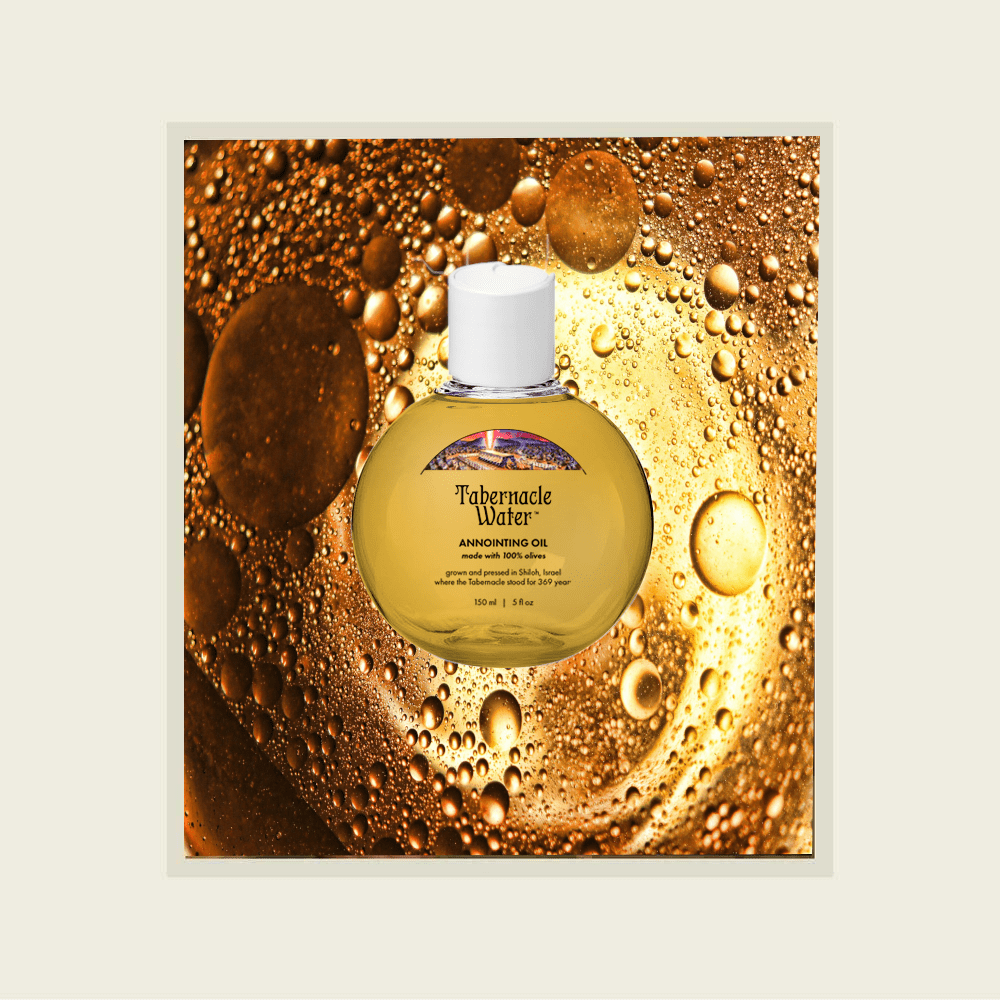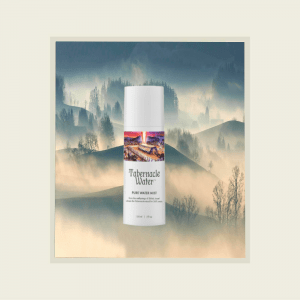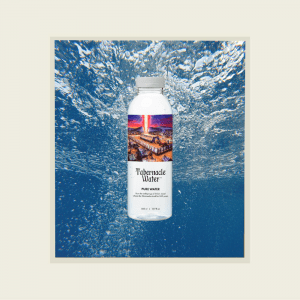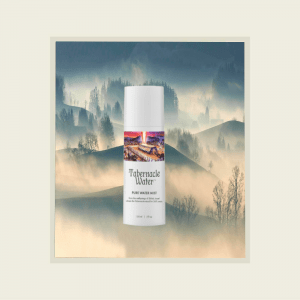
100% Olive Oil, grown and pressed in Shiloh, Israel, where the Tabernacle stood for 369 years.
The holy anointing oil formed an integral part of the ordination of the priesthood and the High Priest as well as in the consecration of the articles of the Tabernacle (Exodus 30:26) and subsequent temples in Jerusalem. The primary purpose of anointing with the holy anointing oil was to sanctify, to set the anointed person or object apart as qodesh, or “holy” (Exodus 30:29).
Originally, the oil was used exclusively for the priests and the Tabernacle articles, but its use was later extended to include kings (1 Samuel 10:1). It was forbidden to be used on an outsider (Exodus 30:33) or to be used on the body of any common person (Exodus 30:32a) and the Israelites were forbidden to duplicate any like it for themselves (Exodus 30:32b).
Some segments of Christianity have continued the practice of using holy anointing oil as a devotional practice, as well as in various liturgies. A number of religious groups have traditions of continuity of the holy anointing oil, with part of the original oil prepared by Moses remaining to this day. These groups include rabbinical Judaism, the Armenian Church, the Assyrian Church of the East, the Coptic Church, the Saint Thomas Nazrani churches, and others

- Boost mood.
- Improve job performance through reduced stress and increased attentiveness.
- Improve sleep.
- Kill bacteria, funguses and viruses.
- Reduce anxiety and pain.
- Reduce inflammation.
- Reduce nausea.
- Relieve headaches.
Tabernacle Water – Anointing Oil, comprises of the most beneficial ingredients for physical and spiritual wellbeing








Reviews
There are no reviews yet.